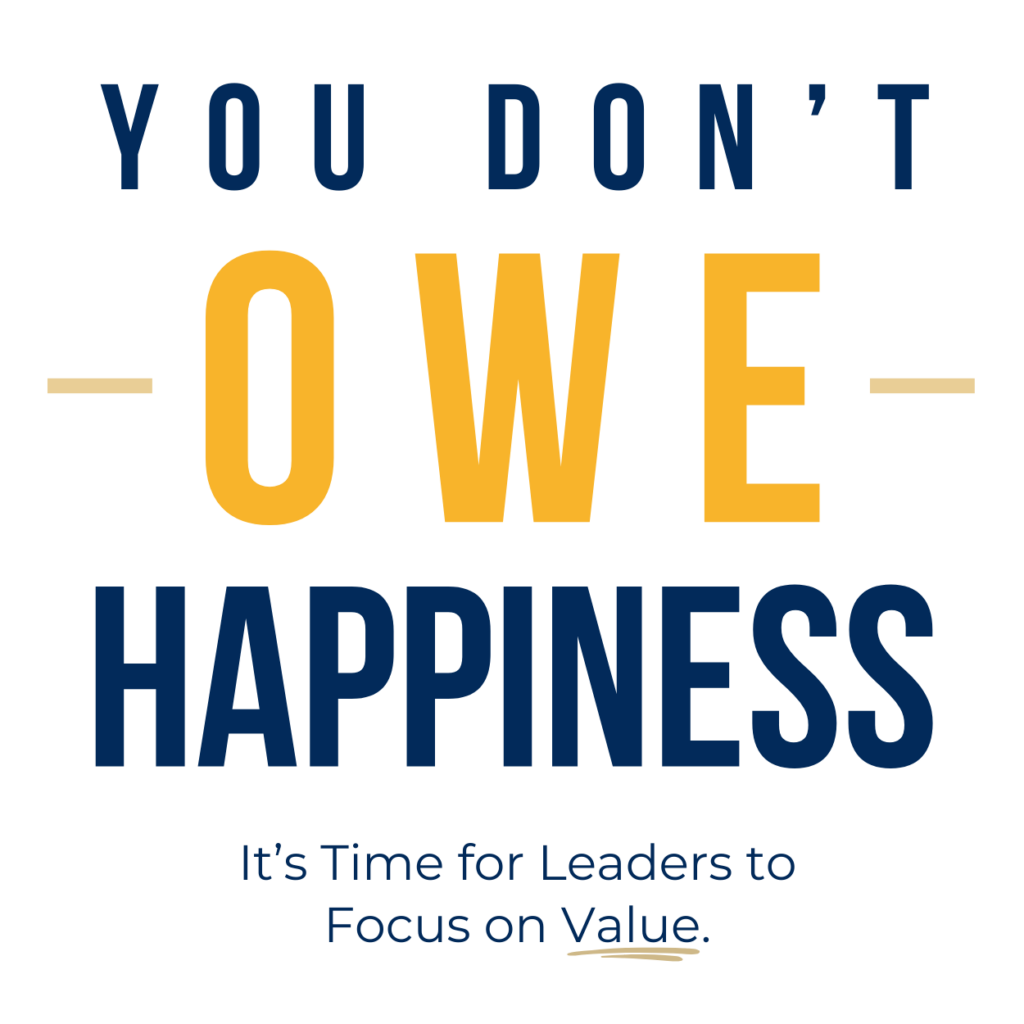A Transformative Approach to Value-Centric Leadership
On this episode of iQor’s Digitally Irresistible podcast, we welcome Sean Ilenrey. Sean is an award-winning tech executive, published author, and keynote speaker whose achievements have inspired his drive to help other professionals achieve their own definition of personal success. In his groundbreaking book, “You Don’t Owe Happiness,” he teaches six key principles of value-centric leadership. He finds that when frontline teams feel valued and valuable, they achieve high levels of employee satisfaction leading to optimal customer service delivery.
Tune in as Sean unpacks his six key principles of value-centric leadership from his book to create smiles for employees, leaders, and customers. ![]()
Sean’s Path to Leadership Inspiration
Sean Ilenrey’s life experiences have played a significant role in defining his outlook and his expertise. In high school, he dropped out of school faced with homelessness and difficulty focusing due to circumstances going on in his life. Fast forward 10 years, and he was a vice president in a customer service role. These life experiences drive his inspirational approach to leadership—a culmination of lessons that taught him it’s okay to want to take care of other people and help them find happiness at work, but the focus should be on ensuring teams feel valued and valuable.
Sean’s customer experience career spans industries ranging from retail to technical support. He has built teams domestically and internationally and supports leadership development that fosters engagement and value.
Six Values That Define Game-Changing Leadership
In his book, Sean elaborates on six key principles that underpin value-centric leadership, providing insights for leaders and organizations striving to optimize employee satisfaction and deliver exceptional customer service.
“I look at employee happiness [knowing] they’re going to have moments where they’re up and down. The key is, are they satisfied? Do they feel like they’re in an environment where they’re valued and valuable? And that’s the main focus you should have. And really, if you want to have a successful team, you don’t owe them happiness. You owe them value.” – Sean Ilenrey
1. Listening and Responding to Employee Feedback
Sean emphasizes the importance of actively engaging with employee feedback. It’s not enough for employees’ voices to be heard; their feedback should drive actionable outcomes. He shares an example of implementing an anonymous daily or weekly survey, followed by personalized video responses from leadership. This not only fosters a culture of transparency but also ensures that employees feel heard and valued.
2. Authentic Rewards and Recognition
Rather than following a traditional, generic recognition approach, Sean advocates for authentic rewards and recognition. He stresses the need for organizations to acknowledge intangible contributions and exceptional efforts beyond standard KPIs. Additionally, the frequency of recognition plays a vital role in reinforcing a culture of gratitude and motivation within the organization.
3. Compensation and Growth Opportunities
Compensation and continuous growth opportunities are essential components of value-centric leadership. Sean highlights the significance of aligning compensation with market standards to ensure employees feel appreciated and fairly rewarded for their contributions. Moreover, he introduces the concept of micro-promotions, providing employees with opportunities to advance within their current roles while feeling recognized for their progression.
4. Showing Their Work Matters to the Organization
Connecting employees with the organization’s larger mission and vision is crucial. Sean shares a personal anecdote about attending a town hall that provided him with clarity on how his individual efforts contributed to the broader organizational goals. It’s essential for leaders to contextualize employees’ roles within the bigger picture, allowing them to understand their impact and value.
5. Championing Your Employees’ Success
Incorporating mentorship and sponsorship into the organizational culture is vital for championing employees’ success. Sean stresses the importance of leaders advocating for their teams and actively promoting their accomplishments both within and outside the department. This fosters a sense of recognition and pride among employees, ultimately contributing to a positive and empowering work environment.
6. Practical Fiscal Responsibility
Finally, Sean emphasizes the critical role of practical fiscal responsibility in value-centric leadership. Maintaining financial stability within the organization reassures employees about their job security, instilling a sense of trust and confidence. Leaders who effectively manage resources, control costs, and prioritize fiscal responsibility provide their teams with a stable and secure work environment.
The Principles of “You Don’t Owe Happiness”
The title of Sean’s book, “You Don’t Owe Happiness,” encapsulates the essence of value-centric leadership. Sean draws parallels between employee happiness and the stock price of a company, noting that genuine employee satisfaction is an outcome of feeling valued and valuable within the organization. The principles outlined here align with his book’s core message, reinforcing the idea that leaders owe their employees value, not just fleeting happiness.

Leading With Value
Sean’s strategies for implementing value-centric leadership within organizations provide a roadmap for creating a culture that prioritizes employee satisfaction and excellence in customer service delivery. Sean’s journey from adversity to success, coupled with his impactful leadership principles, serves as a guiding light for leaders aspiring to build thriving and value-centric workplaces.
His real-world perspective on leading with empathy, authenticity, and strategic foresight to empower teams and drive organizational success provides valuable insights for leadership that creates irresistible workplaces. ![]()
What Sean Does for Fun
In his free time, Sean values experiences and time spent with his family. He and his wife of 16 years enjoy fun experiences checking out restaurants and exploring new places to learn about different cultures and be in the moment. He also relishes time spent playing video games with his three sons, ranging in age from teenager to four-years-old.
To learn more about Sean’s approach to value-centric leadership from his book “You Don’t Owe Happiness,” visit his website at www.seanilenrey.com and connect with him on LinkedIn.
![Symphony-[AI]-CTA](https://no-cache.hubspot.com/cta/default/2486145/interactive-151331998599.png)
